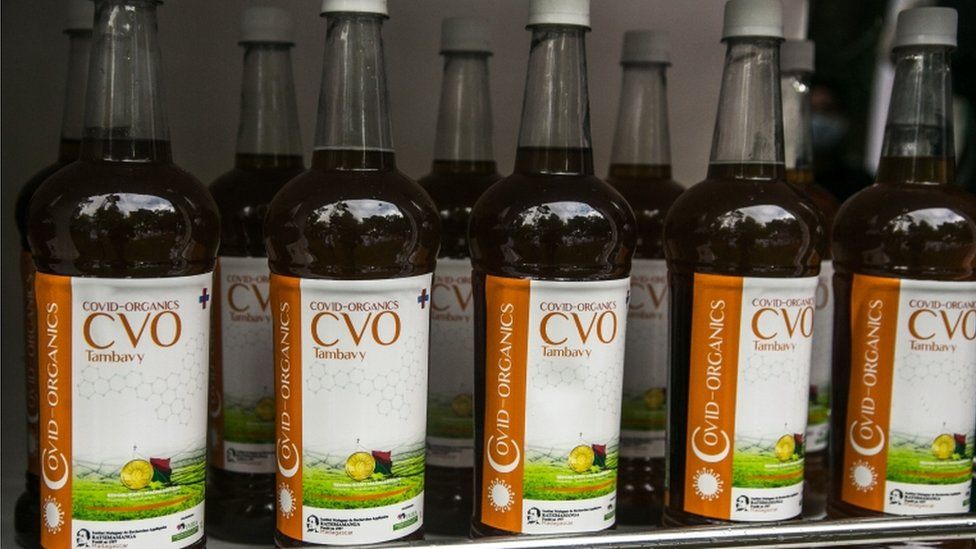The National Agency for Food and Drug Administration and Control (NAFDAC) has promised to fast-track the laboratory examination of COVID Organics (CVO
The National Agency for Food and Drug Administration and Control (NAFDAC) has promised to fast-track the laboratory examination of COVID Organics (CVO), the Madagascar herbal drink said to be a cure for Coronavirus (COVID-19).
This comes after President Muhammadu Buhari while receiving the CVO from the visiting President of Guinea Bissau, Umaro Embalo, at the presidential villa, said the relevant regulatory institutions in the country would need to endorse the product before it could be used by Nigerians.
NAFDAC’s Director of Public Relations, Dr Abubakar Jimoh, who spoke on behalf of the agency’s director-general, Prof Mojisola Adeyeye, said the agency would prioritise the laboratory examination of the product once it received it from the authorities.
“When the drug arrives, it will go to the Minister of Health who will in turn hand it over to NAFDAC through the PTF. It is after that we would start our laboratory examination. It will be subjected to the normal procedure. We would expedite action on this because everyone is anxiously waiting for the result. We would speed it up but it will still have to go through the normal laboratory analysis and medical evaluation,” he said.
“Unlike the orthodox medicine, with the herbal medicine, it is given linctus status, it is not given full registration and that means it has a life span of two years, unlike normal drug that has a life span of five years. So, this is what will be applicable to the Madagascar drug. We would ensure that the claims being made are true.”
On the time needed to complete the process, Dr Jimoh said the normal procedure was three months but because of the present situation, the process would be prioritised without compromising standards. He said, “The normal mandatory procedure is three months, but under this emergency, we would give it a top priority to come out with urgent results. In the process of the evaluation, if NAFDAC needs to get in touch with the manufacturers we will. It all depends on the analysis in the lab.
“This kind of drug does not go through a clinical trial at this stage; it is only when it wants to go through registration that it will be subjected to clinical trial. We are only going to determine its safety and efficacy now.”
